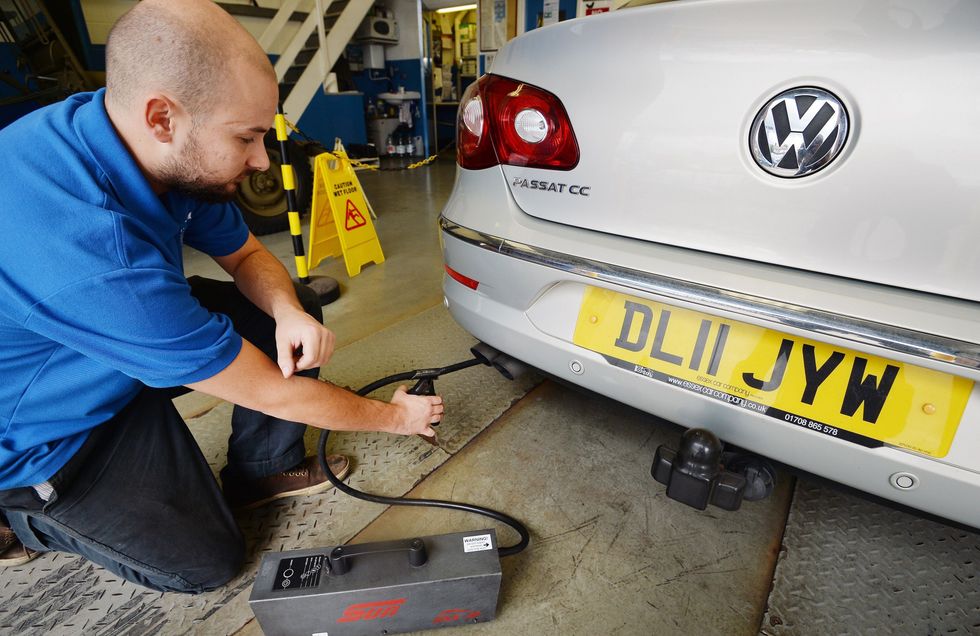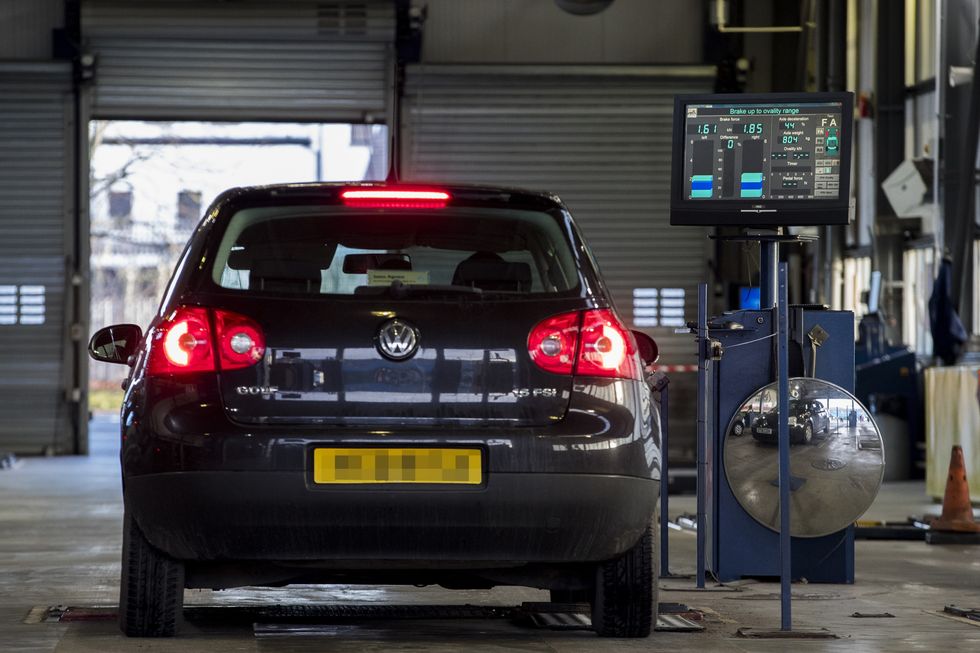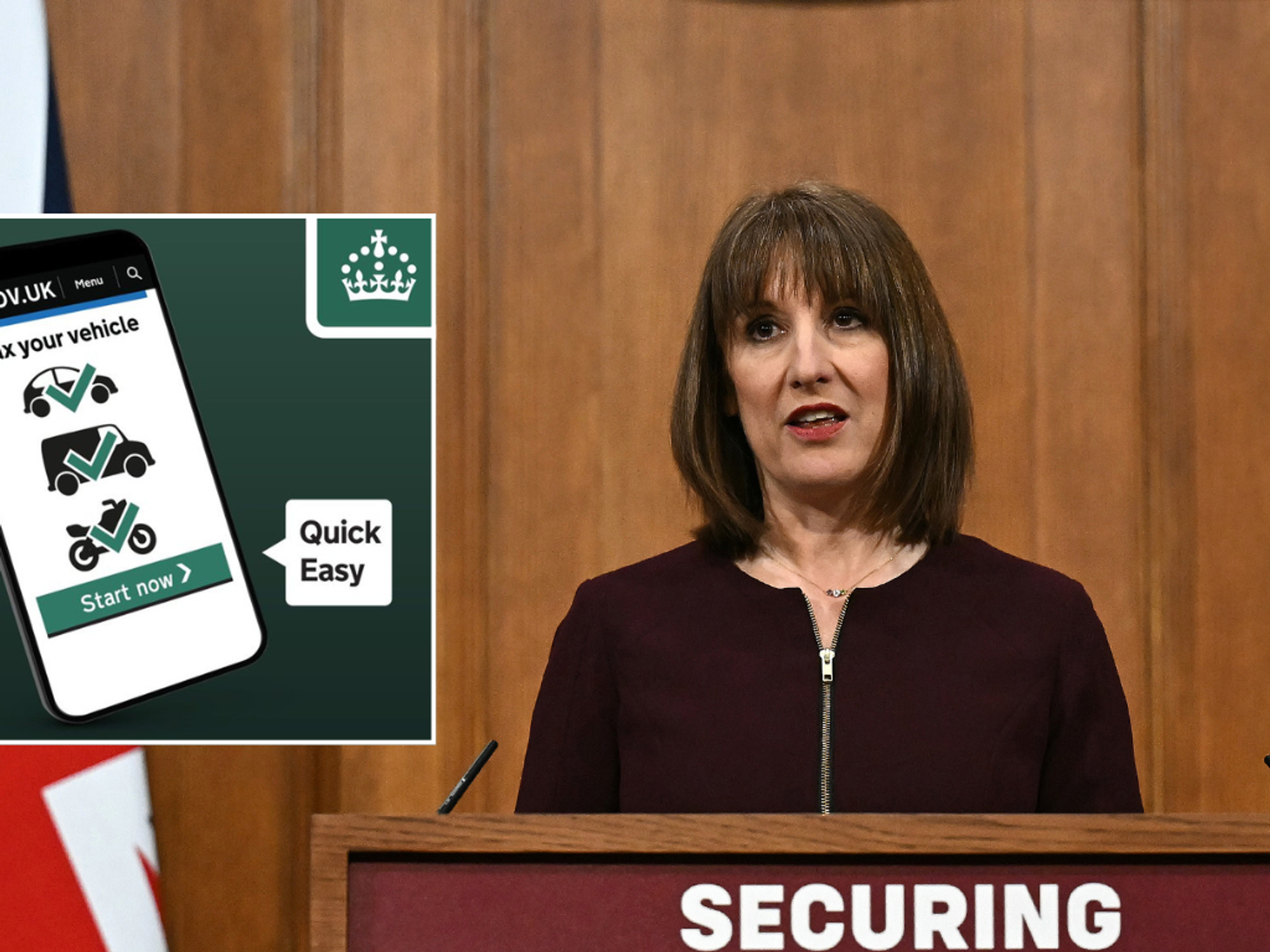The National Franchised Dealers Association for Northern Ireland warned MOT changes would spark safety issues
Don't Miss
Most Read
Trending on GB News
The Driving and Vehicle Agency has been warned that its proposals to change MOT testing in Northern Ireland could "compromise road safety" for millions of motorists.
The National Franchised Dealers Association for Northern Ireland (NFDA-NI) has firmly opposed plans to change MOT testing from annual to biennial for some vehicles.
The warning comes in response to the Department for Infrastructure consultation on new MOT testing, which closed today.
The consultation, which launched on January 22 and ran for 12 weeks, sought views on changing testing frequency for private cars, motorcycles and light goods vehicles.
Do you have a story you'd like to share? Get in touch by emailingmotoring@gbnews.uk

The NFDA-NI warned that changes to the MOT testing would compromise vehicle safety
PAUnder current regulations in Northern Ireland, private cars and motorcycles are first MOT tested at four years old, with light goods vehicles tested at three years old, with all vehicles then tested annually thereafter.
The Department for Infrastructure's proposal would change this to biennial testing for vehicles between four and ten years old.
Infrastructure Minister John O'Dowd previously stated that MOT testing would remain within the public sector and not be transferred to private garages.
The consultation was initiated against the backdrop of significant MOT testing backlogs and capacity issues in Northern Ireland.
In its consultation response, NFDA-NI outlined several key concerns about the proposed changes to MOT testing. The organisation pointed to alarming road safety statistics, noting that 2023 recorded the highest number of annual road fatalities in Northern Ireland, with 71 lives lost, followed by 68 deaths in 2024.
NFDA-NI argued that routine annual MOT testing plays a crucial role in detecting potentially hazardous vehicle faults. The association also highlighted that the UK's strong vehicle safety record in Europe could be undermined by a shift to biennial testing.
Last year, the UK Government decided against delaying a vehicle's first MOT due to significant road safety concerns. The proposed changes would remove approximately 253,000 vehicles from the annual testing regime, representing a 26 per cent reduction from the current annual total of around one million vehicles.
For motorcycles, the change would reduce annual MOT tests by approximately 3,300. Under current projections, the total number of roadworthiness checks will rise to around 1.2 million for light vehicles and 65,000 for heavy vehicles by 2030.
The Department for Infrastructure noted that vehicle defects were responsible for only one per cent of road traffic casualties in 2023, with just 103 casualties attributed to vehicle-related issues. However, insurance bodies have warned that biennial testing could lead to increased premiums due to heightened risk assessments.
Meanwhile, environmental organisations have cautioned that reduced testing frequency could lead to more vehicles with unchecked high emissions on the roads.
NFDA-NI has also highlighted the financial impact of the ongoing MOT crisis on businesses, including the region's car dealer network.
Sue Robinson, Chief Executive of NFDA, said: "NFDA-NI has consistently raised concerns about the MOT challenges in the region, regularly pointing out areas that need improvement. The UK has one of the best vehicle safety records in Europe, and a move to biennial testing would significantly undermine this and not be a viable solution."
LATEST DEVELOPMENTS:
- Petrol and diesel drivers to face £1,650 price hikes as new emission rules force motorists to 'pay the price'
- National speed limit increases for HGVs risk 'penalising' drivers with 'dangerous' road conditions
- Major car brand to back petrol 'for decades' in push for 'freedom of choice' in huge blow to Labour

The Government consultation on whether to extend the time between MOT tests ended today
PA.The association has urged the Department for Infrastructure to collaborate on creating an MOT regime that works for all stakeholders.









